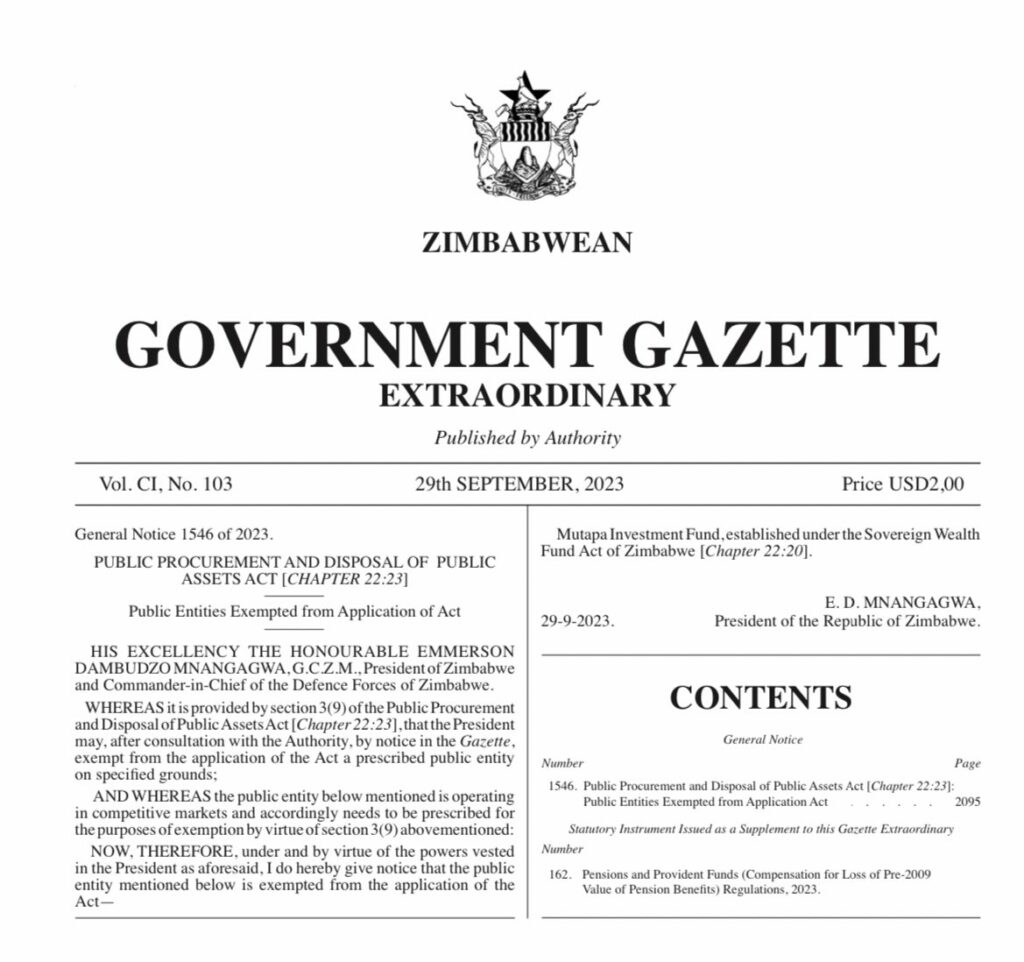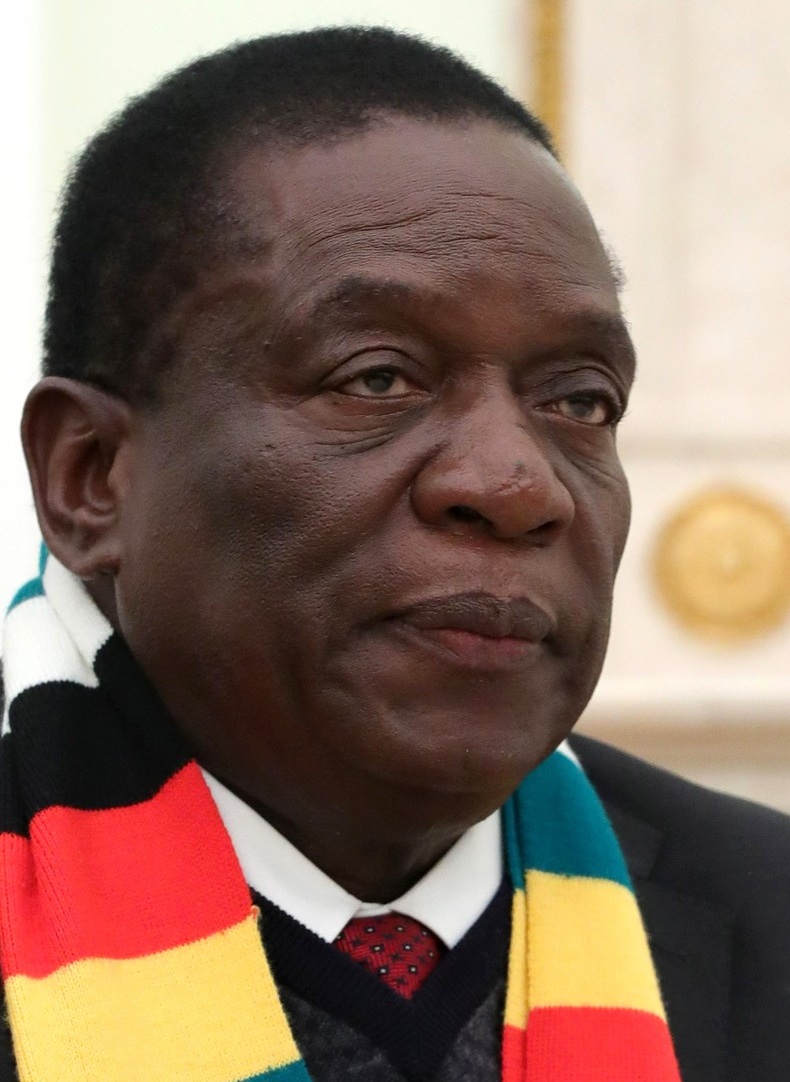Opposition parties have slammed President Emmerson Mnangagwa for exempting the Mutapa Investment Fund from open public procurement procedures, arguing that this undermines public accountability and control of state assets.
The Public Procurement and Disposal of Public Assets Act (PPDA Act) requires all government entities to conduct open and transparent procurement processes. However, Mnangagwa has a statutory instrument exempting certain entities from these requirements.
This means over 20 companies recently placed under the Mutapa Investment Fund – such as TelOne, Kuvimba, NocZim, ZUPCO, and Cottco, will not be subject to Procurement Regulatory Authority of Zimbabwe (PRAZ) procedures because they will not be held accountable for how their assets are operated or disposed of in the future.

The Mutapa Investment Fund was established when President Mnangagwa revoked the Zimbabwe Sovereign Wealth Fund using his Presidential Powers in September without consulting Parliament, which has yet to hold its first sitting.
President Mnangagwa also used his Presidential Powers to amend the Public Procurement and Disposal of Public Assets Act through the recently gazetted Statutory Instrument 156 of 2023, granting himself the authority to exempt certain public transactions from the Act’s application.
Read: Public Procurement Act amendment raises corruption concerns – #Asakhe – CITE
The president then announced on September 29, 2023, that the Mutapa Investment Fund was exempt from open public procurement procedures.
According to the opposition, this move has negative implications because assets transferred into the Mutapa Investment Fund may now be subject to “gross abuse and looting” without public disclosure or recourse, given that President Mnangagwa’s son, David Kudakwashe, who he appointed deputy minister of finance, will be one of the officials in charge of the fund.
“The length and breath of taking Zimbabweans for granted has reached alarming levels. Mr. Mnangagwa has created a massive fund, put it under the control of his son who was controversially made Deputy Minister of Finance and has blocked any measure of accountability by exempting the said entity from going to tender when procuring goods and services,” said Citizens Coalition for Change (CCC) National Spokesperson, Promise Mkhwananzi.
“These are unacceptable dynastification and nepotistic tendencies. Zimbabweans need to come together and say ‘No, Enough is enough.’ Let us have a fresh election in Zimbabwe and put to paid this monumental madness.”
Mt. Pleasant Member of Parliament, Fadzai Mahere dubbed the investment fund “the Mutapa Looting Fund,” describing it as “the grandest heist of this decade.”
“State assets are now his personal piggy bank. There’ll be no public scrutiny on spending or disposal. The Fund is above the law. Citizens must join hands to demand the reversal of this grand theft of state resources,” she said.
ZAPU National Organiser Ndodana Moyo said the latest move by President Mnangagwa was “privatisation of public assets through stealing.”
“We won’t be surprised to hear that public assets were sold to friends or ruling party members in the name of privatisation. We are also shocked how this opened avenues for one family to loot state resources. Will this fund not be managed by the president’s son who is now working in Finance? As if that is not shocking enough, they come up with a law that none of them have to be accountable to the public,” he said.
Independent presidential challenger, Savior Kasukuwere agreed that the use of presidential decrees allowed for the “massive” plundering of state assets,
“There is no debate that public procurement procedures and the disposal of public assets have a profound impact on a nation’s developmental trajectory. Any country that wishes to maximise benefits from its assets and resources in a responsible manner and is also serious about accountability and transparency needs to make sure that it has the appropriate laws, policies and regulations in place to safeguard such public assets and resources from fraud and abuse,” he said.
Kasukuwere added that the exemption of any state entity from the Public Procurement and Disposal of Public Assets Act not only indicates a profound disregard for the interests if citizens at large and the rule of law “but also shows an abhorrence of any accountability or transparency whatsoever by the President.”
“Exempting the fund from such critical oversight means first there will be no obligation by the State to follow due processes regarding the procurement of goods and services by the fund, thus exposing it to unmitigated risk,” he said.
“Second such assets can be disposed of if not necessarily at fair value and to individuals with close ties without any accountability whatsoever.”
Kasukuwere’s team has hinted that the “illegality of this will not go unchallenged” and may approach the courts to seek the reversal of these “looting Statutory Instruments.”

